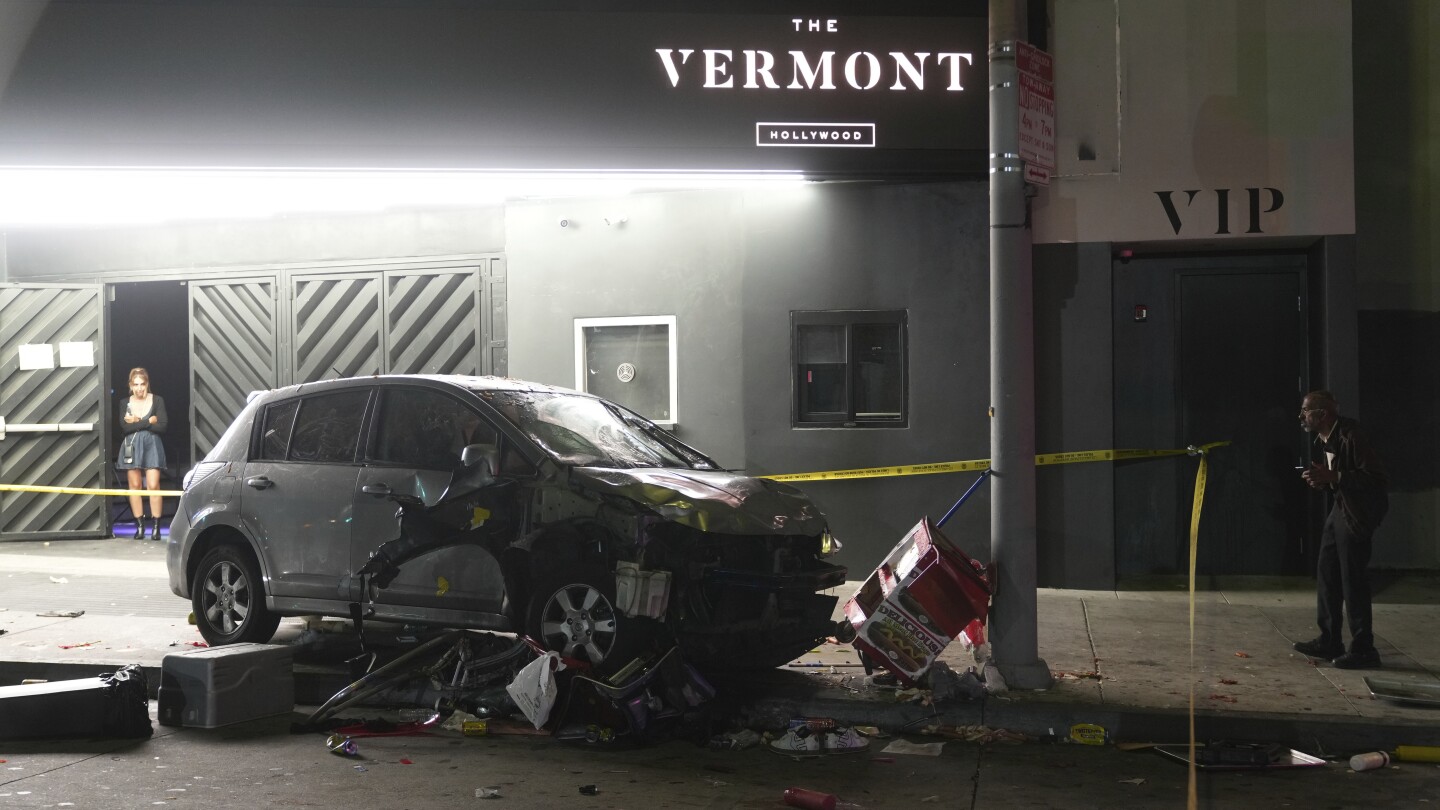TheTechnician27
“Falsehood flies, and truth comes limping after it, so that when men come to be undeceived, it is too late; the jest is over, and the tale hath had its effect: […] like a physician, who hath found out an infallible medicine, after the patient is dead.” —Jonathan Swift
- 256 Posts
- 2K Comments
Fair point. Bird ethics in this country is not governed by reason.
While feeding a bird by encasing it in food may seem ethical at first blush, the reality is that bread is junk food for birds – providing energy but minimal nutritional value. Hence this user was kicked from the group.
I do have to. Doing otherwise robs you of a chance to someday gradually expose yourself to and appreciate these creatures. Or it at least needlessly ruins someone’s mood.
Pseudoscorpions are absolute little goofs, I agree. I’m not sure if that offsets how weird and creepy they are. It’s like I’m giggling and profoundly worried I’m seeing an alien at the same time.
“Think of it less like a hierarchy and more like a web.”
Be thankful they chose Aranae instead of other arachnid orders.
don't open; whip-spider inside



True. Facebook from its inception as Facemash was a way for creepy, misogynist slimeballs to ogle and “rank” women they went to school with against their consent by harvesting public databases. “It was just a prank bro.” —Mark ‘Real Human’ Zuckerberg


The Internet keeping my brain alive.


I for one agree that what’s being done is unjustified. Bolsonaro doesn’t belong cooped up in his house like some kind of animal. He belongs hanging in the public square like treasonous, seditious, fascist filth.


You’re hereby invited to /c/vegan, as you appear to be a Northern Hemisphere vegan.


The short answer is that I really, really suggest you try other things before trying to create your first article. This isn’t just me; every experienced editor will tell you that creating a new article is one of the hardest things any editor can do, let alone a newer one. It’s why the task center lists it as being appropriate for “advanced editors”. Finding an existing article which interests you and then polishing and expanding it is almost always more rewarding, more useful, easier, and less stressful than creating an article from scratch. And if creating articles sounds appealing, expanding existing stub articles is great experience for that.
The long answer is “you can”, but it’s really hard:
- New editors are subject to Articles for Creation, or AfC, when creating an article. The article sits in a draft state until the editor flags it for review. The backlog is very long, and while reviewers can go in any order they want, they usually prioritize the oldest articles out of fairness and because most AfC submissions are about equal in urgency and time consumption. “Months” is the expected waiting time.
- If you’re not using the English Wikipedia, you can try translating over a well-established article from English. There’s no rule that says sources have to be in the language of the Wikipedia they’re on, although it’s still considered a big plus if sources are in the same language. You’d have to keep in mind that the target language may have standards not followed on the English Wikipedia.
- Wikipedia’s notability guidelines are predicated on you understanding other policies and guidelines like “reliable sources” and “independent sources”. They’re also intentionally fuzzy so people don’t play lawyer and follow the exact letter without considering the spirit of the guideline.
- The English Wikipedia currently has over 7 million articles. There are still a lot of missing articles (mostly in taxonomy, where notability is almost guaranteed), but you really need to know where to look.
- When choosing an article subject, it’s extremely important to avoid COI.
- Assuming you have a subject you think meets criteria, now you have to go out and find reliable, independent sources with substantial coverage of the subject to confirm your hypothesis.
- Now you need to start the article, and you need to do this in a manner which:
- Is verifiable (all claims are cited)
- Is not original research (i.e. nothing you say can be based on “because I know it”)
- Is reliable (all citations are to reliable sources)
- Is neutral (you’ve minimized bias as much as you can, let the sources speak for themselves, and made sure your source selection isn’t biased)
- Is stylistically correct (there’s a manual of style, but just use your best judgment, and small mistakes can be copy-edited out by people familiar with style guidelines)
- If the article is nominated for deletion, you have to keep your cool and argue based solely on guidelines (not on perceived importance of the subject) that the article should be kept.
- New articles are almost always given more scrutiny than articles which have been around; this isn’t a cultural problem as much as it is a heuristic one.
- An article deleted feels much more personal than edits reverted (despite the fact that subject notability is 100% out of your control).
Some of these apply to normal editing too, but working within an article others have worked on and might be willing to help with is vastly easier than building one from scratch. If you want specific help in picking out, say, an article to try editing and are on the English Wikipedia, I have no problem acting like bowling bumpers if you’re afraid your edits won’t meet standards.
I really wanted to give Lemmy a try, but I think I’ll be returning to the whiteboard in my office for organic, sophisticated discussion.


Ratchet: “I’ll just call you… ***** for short.”


I’m going to write this from the perspective of the English Wikipedia, but most specifics should have some analog in other Wikipedias. By “contribute to new articles”, do you mean create new articles, contribute to articles which are new that you come across, or contribute to articles which you haven’t before (thus “new to you”)? Asking because the first one has a very different – much more complicated – answer from the other two.


Is it possible that this is an effort to steal work from Wikipedia editors to get you to train their AI models?
I can’t definitively say “no”, but I’ve seen no evidence of this at all.


So Wikipedia has three methods for deleting an article:
- Proposed deletion (PROD): An editor tags an article explaining why they think it should be uncontroversially deleted. After seven days, an administrator will take a look and decide if they agree. Proposed deletion of an article can only be done once, even this can be removed by anyone passing by who disagrees with it, and an article deleted via PROD can be recreated at any time.
- Articles for deletion (AfD): A discussion is held to delete an article. Pretty much always, this is about the subject’s notability. After the discussion (a week by default), a closer (almost always an administrator, especially for contentious discussions) will evaluate the merits of the arguments made and see if a consensus has been reached to e.g. delete, keep, redirect, or merge. Articles deleted via discussion cannot be recreated until they’ve satisfied the concerns of said discussion, else they can be summarily re-deleted.
- Speedy deletion: An article is so fundamentally flawed that it should be summarily deleted at best or needs to be deleted as soon as possible at worst. The nominating editor will choose one or more of the criteria for speedy deletion (CSD), and an administrator will delete the article if they agree. Like a PROD, articles deleted this way can be recreated at any time.
This new criterion has nothing to do with preempting the kind of trust building you described. The editor who made it will not be treated any differently than without this criterion. It’s there so editors don’t have to deal with the bullshit asymmetry principle and comb through everything to make sure it’s verifiable. Sometimes editors will make these LLM-generated articles because they think they’re helping but don’t know how to do it themselves, sometimes it’s for some bizarre agenda (e.g. there’s a sockpuppet editor who’s been occasionally popping up trying to push articles generated by an LLM about the Afghan–Mughal Wars), but whatever the reason, it just does nothing but waste other editors’ time and can be effectively considered unverified. All this criterion does is expedite the process of purging their bullshit.
I’d argue meticulously building trust to push an agenda isn’t a prevalent problem on Wikipedia, but that’s a very different discussion.















I don’t know what you mean by “identify yourself”. You need an account with a trustworthy history of editing, at which point you can request the exemption.